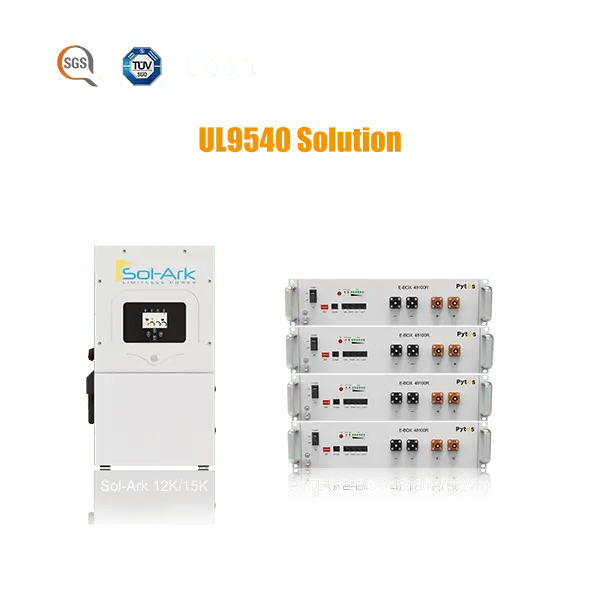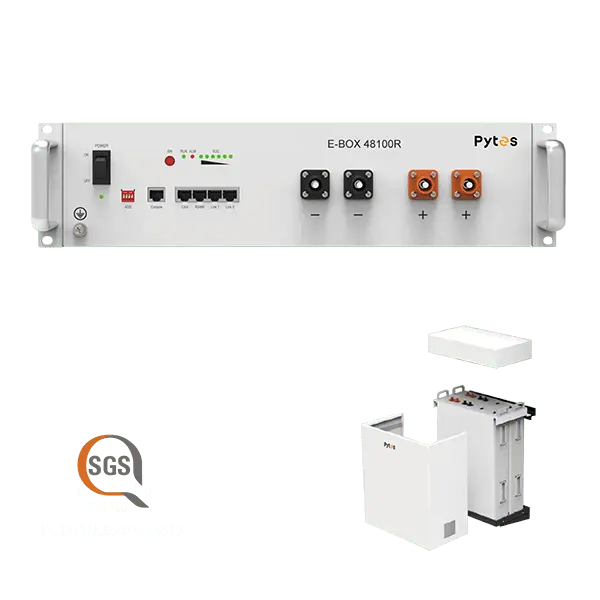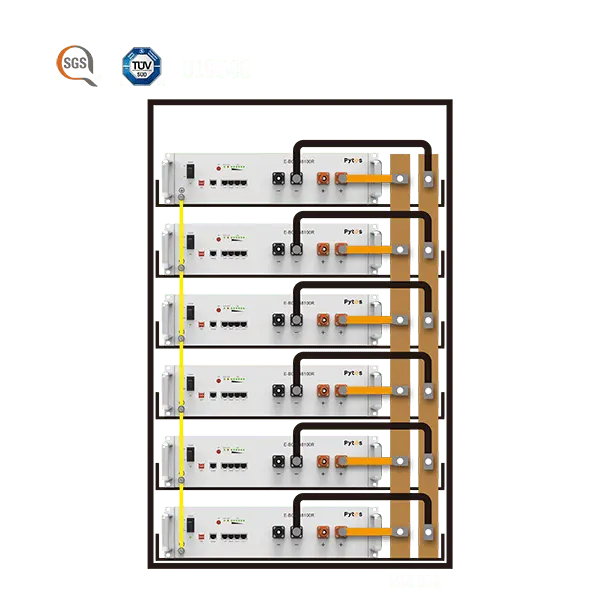Whether you're new to the world of solar energy and looking for the best system for your building, or your home has had solar panels installed for years, solar batteries can have a huge impact on the efficiency and versatility of your solar installation. Solar batteries store system excess energy produced by the sun and can then power your home on cloudy, rainy days or after the sun sets.
Our solar battery guide can help answer your questions about solar cells and help you choose the best option for your facility or home needs.
What Is A Solar Battery
Without somewhere to send the energy produced by your solar panels, solar power is quite inefficient—your appliances only work when the sun is shining and the panels are working. If you don't use that energy, it's wasted—and you don't get to use it at night. Solar cells store the energy produced by your panels so it can be used when you really need it. Solar cells are an alternative (or supplement) to feeding energy back to the grid and can help you make your home or facility somewhat immune to blackouts, or even help it go off the grid entirely.
How Do Solar Batteries Work?
Solar batteries are the key to unlocking the full potential of renewable energy. Since sunlight is converted into electricity through solar panels, any extra energy generated during sunny periods can be captured and stored in these batteries for future use. This also ensures continuous power supply throughout the year.
A chemical reaction occurs inside the solar battery, which stores excess electricity as potential energy. So when power is needed when there is no sunlight, such as at night or on a cloudy day, the stored energy is converted back into usable power and supplied to your home at any time.
By allowing homeowners to maximize the use of solar energy, solar batteries increase the reliability of solar power systems and reduce reliance on the traditional power grid. The ability to store and utilize solar energy even when sunlight is limited makes solar energy a more practical and efficient option for renewable energy.
Solar Battery Types
The three main battery types used in solar power are lead-acid batteries, lithium-ion batteries, and nickel-cadmium batteries.
1.lead acid batteries
Lead-acid batteries have limited cycle life, meaning they can only be charged and discharged a certain number of times before their performance begins to decline. Lead-acid batteries have been used for decades and are one of the most common battery types used in automotive and industrial applications, but they have low energy density (meaning they cannot hold much energy per kilogram of weight).
2.lithium ion batteries
The technology behind lithium-ion batteries is much newer than other battery types. Lithium-ion batteries have high energy density and offer smaller, lighter and more efficient options. Lithium-ion batteries are lighter, charge faster, and convert energy more efficiently than lead-acid batteries.
Moreover, lithium-ion batteries do not contain any substances with high environmental load and are more environmentally friendly. For many homeowners, lithium-ion batteries are a viable option.
3.Nickel Cadmium batteries
Nickel-cadmium batteries are rarely used in residential environments and are most popular in aerospace and industrial applications due to their high durability and unique ability to operate in extreme temperatures. Nickel-cadmium batteries also require relatively little maintenance compared to other battery types.
Unfortunately, cadmium is a highly toxic element that can have significant negative impacts on our environment if not handled properly.
Solar Battery Cost
The cost of a solar battery or battery system depends on the type and size of batteries chosen. Generally speaking, lead-acid batteries bring lower upfront costs to consumers than lithium-ion batteries, but depending on how the battery is used, investing in lithium-ion batteries can save money in the long term. For example, you can refer to Pytes new LFP battery-V5°.
A single lead-acid battery costs somewhere between $200 and $800, or more, depending on the size/power of the battery. Multiple lead-acid batteries may be needed to fully power a home. The average cost to install a residential lithium-ion solar battery system is approximately $7,000 to $14,000.
Nickel-cadmium battery prices vary widely, depending on the size and scale of the installation. This type of battery is not commonly used in residential applications and they are more suitable for commercial/industrial settings due to cost, durability, size, stability in extreme temperatures, and disposal requirements after replacement.
Benefits of Using Solar Batteries
The best thing about solar battery storage is that it allows you to store the excess energy produced. One of the most important benefits of solar batteries is that they not only provide backup power; They also generate energy after hours when you don't want to send excess solar power back to your local utility company.
energy independence
Solar batteries are an important part of a home that relies entirely on solar energy. The battery stores power during the day so the light can stay on throughout the night. A solar battery system can also transform your off-grid solar system into an emergency backup system during a power outage.
Savings on electricity bills
Solar batteries can help consumers harness the sun to power their homes. This will allow them to purchase less electricity from the grid and save on electricity bills.
Reduce carbon footprint
Solar energy can minimize our use of fossil fuels and protect our environment. Solar batteries generate solar energy when exposed to sunlight, which can then be used to power devices or charge laptop or cell phone batteries.
Solar Battery Brand
Solar battery brands continue to evolve and improve. Your trusted solar battery brand will provide you with long-lasting batteries.
Pytes, for example, has been at the forefront of residential energy storage solutions since 2004 and has been delivering more reliable and efficient energy storage solutions to homeowners around the world for more than 10 years. The Pytes E-Box-48100R is an advanced solar battery storage system that provides you with safer and more efficient energy storage. Compatible with all mainstream inverters on the market; it has a wide range of applications, including off-grid, backup, zero output, time sharing, demand response, peak shaving, virtual power station, etc. Moreover, the E-Box-48100R is compact and easy to install, eliminating the need for additional components and optimizing system efficiency, making it a smart choice for your battery replacement, expansion, or new installation.

Conclusion
Solar batteries provide clean, green, renewable energy for your home and are a great investment that can help you save on energy costs after sunset or during emergencies. If you live off the grid, they can be an important part of your energy system.

